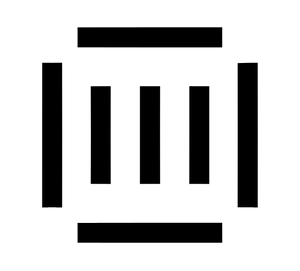
Holidaymakers and potential investors may be interested in what currency to take to Dubai. The currency in the UAE is the dirham (AED currency), which was put into circulation on 19 May 1973. Since 1997, the dirham has been pegged to the US dollar exchange rate and retains a fixed value of 3.6 AED to $1.
Content:
- An overview of the Arab currency and its role in the world economy
- Major currencies in Dubai and the UAE
- Currency regulations
- The impact of digitalisation on the Arab currency
- Transactions in cryptocurrency
- Remote property purchase
- Legislative regulation of online transactions
- Conclusion
An overview of the Arab currency and its role in the world economy
The United Arab Emirates has a strong economy with a high GDP per capita and low inflation rates, at $53,700 and 4.8 per cent, respectively, at the end of 2022. The resilience of the local market attracts investors looking to invest in a safe asset in times of economic uncertainty.
Economic stability supports the currency in UAE. The latter is due to oil reserves, which contribute significantly to its GDP, and the active development of the tourism sector. Among the primary reasons to buy dirhams are:
- stable exchange rate;
- high liquidity;
- low inflation rate.
The advantages of the Dubai currency make it a strong competitor in the global market.

Major currencies in Dubai and the UAE
Dirhams are used for all kinds of transactions, from shopping in shops and restaurants to paying for services and property in Dubai. Dollars and euros are used simultaneously, particularly in tourist locations. Almost every respondent recommends dollars when asked what currency to buy in UAE. However, it is essential to consider that they are not accepted everywhere in their pure form. Making settlements in local money is better to avoid unfavourable exchange rates or additional commissions.
There are no difficulties with where to buy dirhams. You can use the services of exchange offices, banks or machines, which are available at airports, shopping centres and many other places throughout the Emirate.
You can also exchange other currencies for dirhams, but you should consider the unstable exchange rate in this case. Because of its fluctuations, the amount after the exchange can change, so dollars are safer, especially for large purchases.
Currency regulations
There are no dirham currency regulations as measures the government takes to control and manage the exchange and trade of national currency with foreign currencies. In the United Arab Emirates, residents and non-residents may hold fully convertible accounts at home or abroad in dirhams or foreign funds.
The taxation system is no less attractive for foreign investors. Those planning to buy villas in Dubai will find it helpful to know that there are no income taxes here.
You can rent and resell your home without tax liability to the government.
The role of currency in international trade
Historically, the Middle East has been a central trading region as a crossroads, linking East to West and North to South. In addition, its rich reserves of oil and natural gas have made it a crucial player in the global energy market for decades. However, the economic importance of the Middle East and the United Arab Emirates goes far beyond energy exports and includes textiles, electronics, machinery, and other goods. Fluctuations in the exchange rate significantly impact trade, but the stability of the Arab dirhams means that both exports and imports do not change in volume due to price changes.
Currency market forecasts and trends
As mentioned above, the dollar rate in Dubai is pegged to the local currency. Since the country has all the necessary resources for further development, investors should not fear sharp fluctuations in the exchange rate. The long-term situation in the currency market confirms this. Pandemics, unstable geopolitical concerns, and international conflicts do not affect Dubai's currency, which makes investments safe and potentially profitable. There is no fear that it will depreciate.
The Government of the United Arab Emirates has been actively pursuing diverse economic activities, reducing dependence on oil revenues and encouraging the development of other areas, including tourism, housing and the financial sector. These diversification efforts have proven particularly important during the oil price decline, helping to keep the country's economic growth stable.

The impact of digitalisation on the Arab currency
Digitalisation in the UAE has significantly impacted simplifying monetary transactions and payments. In recent years, the Emirates has introduced many innovative solutions and technologies that have transformed the financial industry. Here are the main aspects of this transformation:
- Mobile payments and apps. Mobile payment systems, apps like Apple Pay and Samsung Pay, and local services like Beam and Emirates Digital Wallet are heavily utilised in the country. These apps provide users a convenient and secure way to make everyday payments and transfers.
- Digital banks and banking services. Many banks in the UAE are actively integrating digital technology by offering online banking and mobile apps for account management, fund transfers and bill payments. These innovations make financial transactions much easier and more accessible.
- Blockchain and cryptocurrencies. The UAE is actively exploring and adopting blockchain technology to improve the security and efficiency of financial transactions. In addition, there is a growing interest in cryptocurrencies and digital assets as vehicles for transactions and investments.
- Contactless payments. NFC (near-field communication) technologies enable fast and secure payments in shops and public transport. This is convenient for consumers and helps reduce settlement time.
- Government Digital Platforms. The UAE government is developing digital platforms to facilitate various government services, including payment of government fees. These platforms make the process more transparent and efficient.
- Innovation in the fintech sector. Fintech start-ups in the UAE offer various innovative solutions, such as digital wallets, P2P lending platforms and personal finance management tools, contributing to the financial sector's development.
- International cooperation. The UAE is actively engaging with other countries and international organisations to develop and standardise digital financial technologies, which contributes to strengthening international economic ties.
Digitalisation in the UAE has significantly improved the accessibility and convenience of financial services, making them safer and more efficient. The daily lives of citizens and residents have become more manageable. Digitalisation contributes to the country's economic growth and development.
Below, we look at some of these practices in more detail.
Transactions in cryptocurrency
Today, the MENA region ranks in the top 10 for cryptocurrency usage globally, with a cumulative transaction value of $389.8 billion between July 2022 and June 2023. The rationale is that the new digitalisation can open up many cross-border opportunities. The use of blockchain facilitates greater access to financial services and faster remittances.
According to Deepa Raji Karbon, managing director and vice chairman of the Virtual Asset Regulatory Authority (VARA), expats dominate the country's market. They send money back home, and virtual assets help facilitate this process.
Remote property purchase
Up to 70% of property sales in Dubai are done remotely. Such a purchase can be made ordinarily by bank transfer or cryptocurrency. This method is gaining popularity in the primary market: many developers offer to make payments by crypto transfer. Here, there may be some restrictions regarding specific platforms and types of digital currency, so it is better to consult a specialist.
The secondary market is more conservative, but such transactions are possible here. Some sellers may require buyers to convert cryptocurrency into real money (e.g. buy dirham). In this case, the client can use the services of particular companies that will solve this issue for a small commission.
Legislative regulation of online transactions
Under new rules introduced by the Ministry of Economy (MoE) and the Ministry of Justice (MoJ), all estate agents, brokers and law firms must report property sale and purchase transactions. This rule applies to transactions with three types of payments:
- Cash payments, including single or multiple payments of AED 55,000 ($15,000) or more.
- Payments using virtual assets.
- Transactions where funds originate from virtual assets.
These measures are part of a strategy to strengthen the fight against money laundering and increase the transparency of financial transactions in the property sector.

Conclusion
Regarding which currency in Dubai is best for transactions, dollars and dirhams remain the most common and stable option. For investors, housing remains the most popular investment format. Our portal showcases all types of property. Specialists will help you buy houses or apartments in Dubai, advising you in which currency you can pay. A convenient search system allows you to estimate prices in real-time. Study offers from developers and real estate agencies right now so you can take advantage of the most favourable options!








































